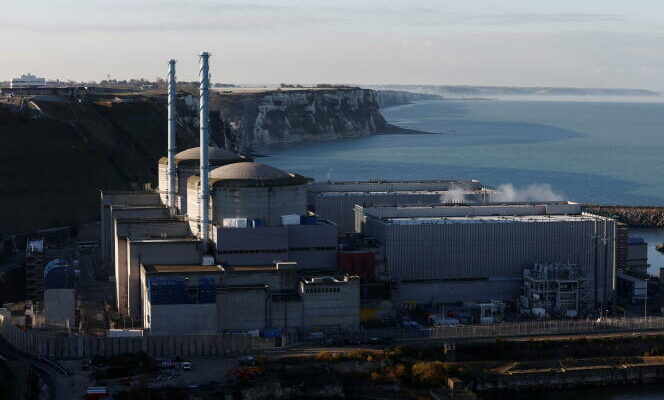Nuclear reactors and hydraulic dams have one thing in common. The two main sources of electricity in France (nearly 77% of production in 2023) need water, for example for cooling reactors and producing dams. However, global warming threatens the country’s aquatic resources. In perspective: droughts, conflicts of use, drop in flow rates. “Increased risks” will therefore weigh on these installations in the decades to come, recalls the Court of Auditors, Tuesday March 12, in its public report for 2024, one year after specific work on nuclear power.
According to the institution, “ the operators (…) must further intensify their adaptation actions” to climate change. However, she adds, they have already “widely integrated” the question “in the safety guidelines and standards”.
The report primarily concerns EDF, responsible for the French nuclear fleet. With its Adapt project, since 2021, the public group intends to model the country for 2050. Its fifty-six reactors currently in operation have an average age of 38 years; he is studying the possibility of taking them up to 60 years or more. Some power plants are already protected by a dike, such as in Gravelines (North), in anticipation of rising water levels.
As the government wants, the electrician is also working on the construction of six new reactors by the middle of the century, or even eight others thereafter. These units are designed to last at least sixty years. Enough to situate the debate in the very long term, potentially beyond the 21ste century.
EDF also provides the majority (around 70%) of hydraulic production in the country, far ahead of the Compagnie nationale du Rhône, a public interest company (around 25%).
Limited impact
To these two operators, the Court of Auditors requests“identify and measure the costs of adaptation to climate change (…)in operation as in investment ». According to EDF, the implementation of measures linked to climate change has already led to 960 million euros in expenditure on its nuclear fleet between 2006 and 2021, particularly during in-depth reviews of power plants. The group has programmed an additional 612 million euros between 2022 and 2038. But the Court recalls that “this figure does not take into account cooling tower projects (…) which could be installed on certain open circuit power plants on the banks of the river. Each new tower would cost 500 million euros. Exploratory studies concern three sites, those of Saint-Alban (Isère), Bugey (Ain) and Tricastin (Drôme).
You have 38.2% of this article left to read. The rest is reserved for subscribers.
